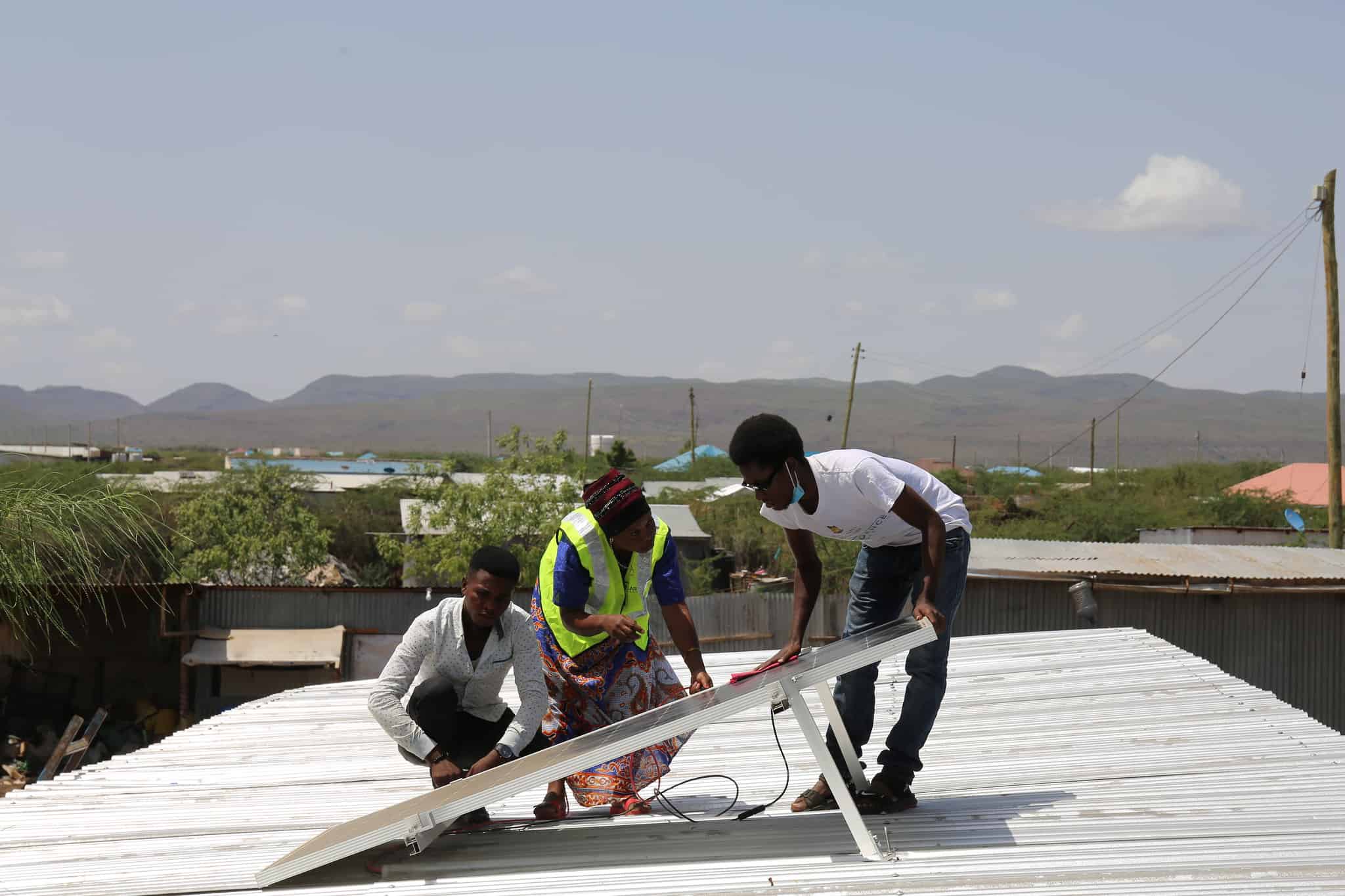Ashden is urging the UK government to make the most of its role as co-host of November’s COP26 climate summit, and create a platform for radical change. Here are three ways the UK Government can make COP26 a success.
Keep the promise to support those at greatest risk
The UK and other rich nations must keep a long-standing pledge to mobilise $100billion of climate funding every year between 2020 and 2025. Alok Sharma, leading the UK’s presence at COP26, has acknowledged that less wealthy nations are frustrated that promised funds have not come fast enough. His call for more ambition is welcome, but these countries also need to see actual cash on the table – and fast.
A key goal for this investment must be supporting skills and better work. This could mean funding training for solar system installers and sales teams, or backing the loans that help energy access businesses thrive. Support for skills and better work would ultimately lower emissions, but also meet development goals by building local economies and – if support is directed to the right organisations – reducing poverty and inequality.
The potential for growth is huge. In three large countries – India, Kenya and Nigeria – experts have predicted that jobs in decentralised energy access will double between 2019 and 2022/23. But there is a frightening skills gap between wealthy and less wealthy countries, one that risks entrenching global inequality. In Sub-Saharan Africa – where, in some countries, rural electricity access can be as low as 10% – there are just 179,000 people employed in the renewable energy sector, compared to 1.3 million in the EU.
Support and celebrate local action
A low-carbon future is within our reach, but only if every corner of society is working towards this goal. This November, the UK can lead by example if it does more to energise local climate action.
Our schools are a great place to start – young people are desperate to tackle the climate crisis, and with 42% of UK households having school-age children, our classrooms can spark change right across society. The Let’s Go Zero campaign is uniting schools aiming to become zero carbon by 2030, with more joining every week. It’s time for government to help these pioneers realise their ambitions.
Local authorities also have a key role to play. They can engage communities and work with them to unlock the many benefits of climate action – such as new and better jobs, improved health, and reduced inequality. But councils currently lack the resources to take action. By stepping up support, the UK Government will show it is serious about a low-carbon transition that works for everyone. We’re part of the Blueprint Coalition, which has set out how politicians can achieve this aim.
Inspire with proven, practical solutions
A low-carbon world is no fantasy – the proven solutions that can create it already exist. With enough investment and supportive policies, these innovations can grow and be replicated. We’re urging the UK Government to present a practical route forward at COP26 – spotlighting the organisations and leaders that are creating change. This will inspire key changemakers but also the public, particularly if we highlight the immediate benefits climate action brings. Work is needed to build the foundations for whole-of-society of change – for example, currently just 7% of the UK public associate climate action with jobs and work.
From community-run solar power stations in Yemen to pedal-powered cargo deliveries on the streets of London, there are a host of inspiring initiatives out there. We’ll be revealing even more in November when we announce the winners of the 2021 Ashden Awards. This summit is a rare opportunity for frontline innovators to speak to the world. Let’s make sure they are centre-stage.

